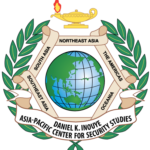The Journal: Security Nexus is a free, open-access, international, peer-reviewed online publication for DKI APCSS faculty and alumni as well as many other security professionals (including interns). It features original research, reviews, policy papers, and management articles in the broad area of security cooperation with a particular focus on security-sector development, crises, disasters, counterterrorism, maritime, and other transnational security challenges. Security professionals, military, government workers, diplomats, academics, researchers, and students are encouraged to consider aspects of their work and projects for publication.
The core business of Security Nexus is to serve as a security cooperation journal for all DKI APCSS Alumni (Faculty and Fellows), create a legitimate vehicle for alumni to share their work, insights, and achievements, support regional security cooperation by disseminating timely policy guidance and information, and raise the profile of DKI APCSS alumni as security professionals throughout the Indo-Pacific region.
Request for Contributions: Themes are in the chapter headings (below). Style can be casual (e.g., personal experiences) or formal and can range from 500 to 5000 words. We will assist any writers in terms of style and even referencing, as required.
Special Edition Suggested Topic Areas (other topics also welcome):
- Accepting Climate Change: Bowing to the Inevitable. Beyond the wide range of climate change narratives, there has also been a widespread and benign belief that behavior change will stop the progress of climate change. While recognizing the benefits of this approach, this chapter recommends a realistic approach to the inevitability of climate change. However, the chapter will maintain a balanced view on climate disruption mitigation and adaptation. While accepting the inevitability of certain impacts is crucial, the chapter will highlight or emphasize that ongoing mitigation efforts to prevent further escalation are equally important.
Sections: The relevance of climate change denialism; climate change mitigation efforts; the inevitability of climate change impacts; acceptance and security implications; adaptation strategy examples. - Humanitarian Assistance and Disaster Relief: What effects will climate change have? It is generally accepted that climate change has an increasing, if indirect, effect on the patterns and frequency of natural disasters, including flooding, tsunamis, earthquakes, and other related concerns. In the future, this will have an increasing effect on HA/DR efforts, which are described and forecasted here.
Sections: A short regional history of HA/DR and climate change; current concerns for the Indo-Pacific; future strategies; HA/DR and regional security. - Implications for Defense Forces. Defense forces have traditionally focused on man-made threats and warfare. However, many countries are increasingly developing climate change expertise and even active duty programs related to response strategies. This chapter explores the evolving role of defense forces in the region, including examples of successful military-led climate initiatives from within the Indo-Pacific region to provide practical insights and best practices.
Sections: Early military climate change initiatives; challenges to military involvement; the interdigitation solution; security compromises and risks of mission diversification. - Climate Change and Health Security in the Indo-Pacific. There are significant and increasing links between climate change and public health in the region, particularly related to pandemics, epidemics, health security, and infectious disease control. This chapter explores current and future linkages and threats.
Sections: Foundations of enviro-public health; the impact of COVID-19 on health security; the climate change drivers of disease; climate and health and the preeminent future security threats to the region. - Climate Diplomacy and Great Power Competition. Efforts to mitigate both climate and public health threats have an increasingly soft power or diplomatic or strategic component. Programs have to be designed and delivered with strategic climate and health issues in mind. Similarly, climate diplomacy will be contextualized and considered within the current geopolitical landscape, i.e., the Indo-Pacific’s strategic significance and the role of major powers in shaping regional climate policies.
Sections: Climate diplomacy built on public diplomacy; examples of diplomatically sensitized climate programs; the challenges of combining diplomacy and the environment; implications for regional
security and stability. - Climate Change, Refugees, and Regional Displacement. A key consequence of climate change will be human displacement based on widespread sea level rise and other first and second-order effects. This has been combined with dramatic recent increases in human mobility. This chapter explores these linkages and associated threats for the region. The discussion on refugees and displacement will be handled sensitively, focusing on data and case studies to illustrate the security implications without veering into contentious political debates.
Sections: How does climate change produce refugees; public health issues and threats; regional displacement and globalization; security effects of displacement. - Climate Change as a Unifying Regional Force. This chapter is the culmination of the message of this book: that globalization combined with climate change and pandemics has led to a world in which conflict is increasingly costly. Instead, nations must understand that no country can combat climate change alone and that international cooperation is the only way to manage this common external threat.
Sections: Lessons from recent international challenges for coordinated international responses; the forces of globalization; the evolving scale of conflict over time; changing security threats in the 21st century. - Climate Security versus Economic Security. There is an increasing disconnect between the pursuit of economic security versus climate security. In almost all cases, economic growth requires climate sacrifices and compromises. This also involves long-term versus short-term economic and climate trade-offs.Sections: The need for new measures of GDP; long and short-term thinking; combining economic and climate security.
- Climate Change and Regional Security: Community Perspectives. When discussing security, this primarily refers to state or regional security – but many other forms of security are arguably more important to the future. This chapter considers dimensions such as human security in the climate change context and offers a valuable perspective by focusing on community-level impacts and human security (while also flowing with the broader regional security themes to maintain coherence).
Sections: Community perspectives on security and climate change; community-level priorities; divergences between national, regional, and community perspectives. - Climate Change and Energy Security: Climate change has been and continues to be closely linked to energy issues. From fossil fuel consumption to a wide range of waste and byproducts of human energy production and consumption, many of the drivers of ozone layer depletion, greenhouse gases, the release of chlorofluorocarbons, and a range of other connections have been driven by humanity’s energy needs. Yet, numerous issues remain regarding alternative forms of energy that have been proposed as more ecologically and environmentally friendly. Finding the right balance between human needs and environmental protection has been challenging.
- Other Topics: Authors interested in exploring other dimensions of climate change and regional security (e.g., maritime security, cyber security) are incited to submit concepts and papers for review. These will be included in a separate section related to developing new security-climate dynamics.
Deadlines: The Special edition will be published in December 2024. Article Titles due by August 31, 2024; First draft by October 1, 2024; Final articles due by November 1, 2024.
Contact: Sebastian (Bass) Kevany kevanys@dkiapcss.net and John Reiss (editor) nexus@apcss.org
Instructions to Authors: Can be found at https://dkiapcss.edu/author-instructions/
Published: August 16, 2024
Category: Perspectives
Volume: 25 - 2024
Author: John E. Reiss,Sebastian Kevany





